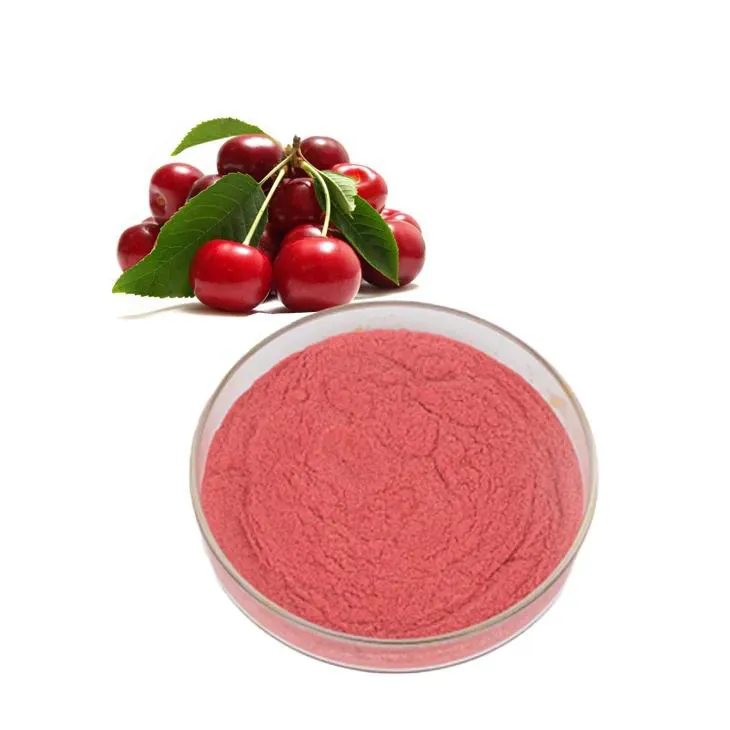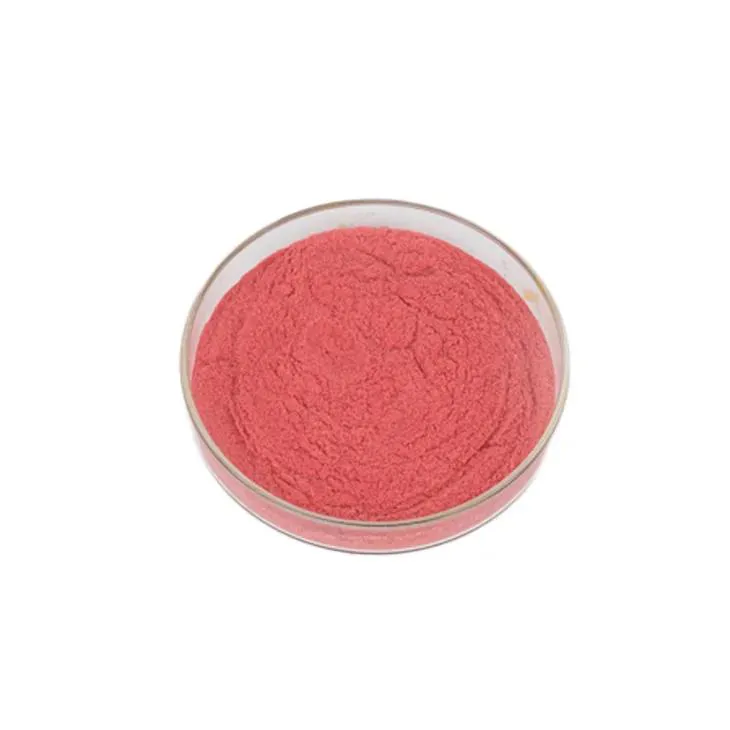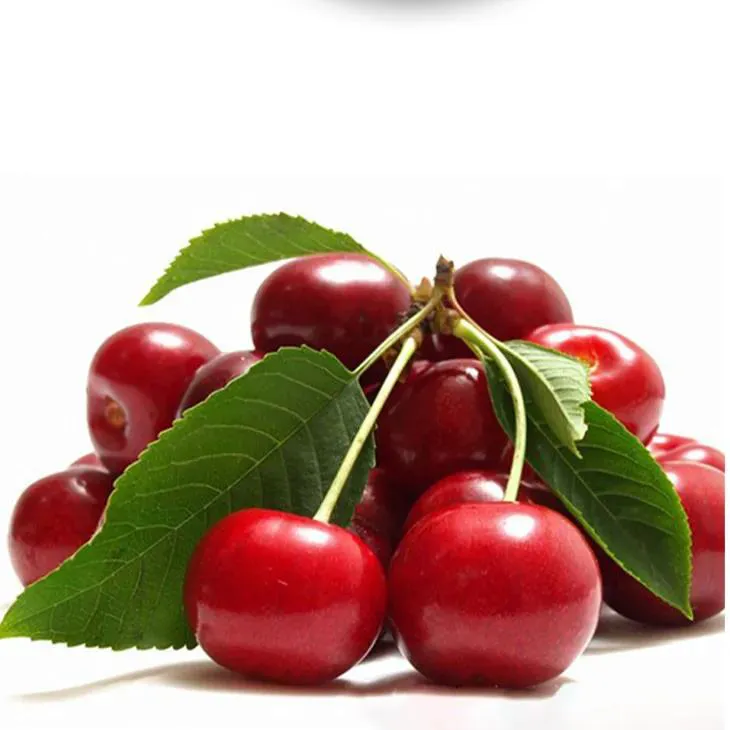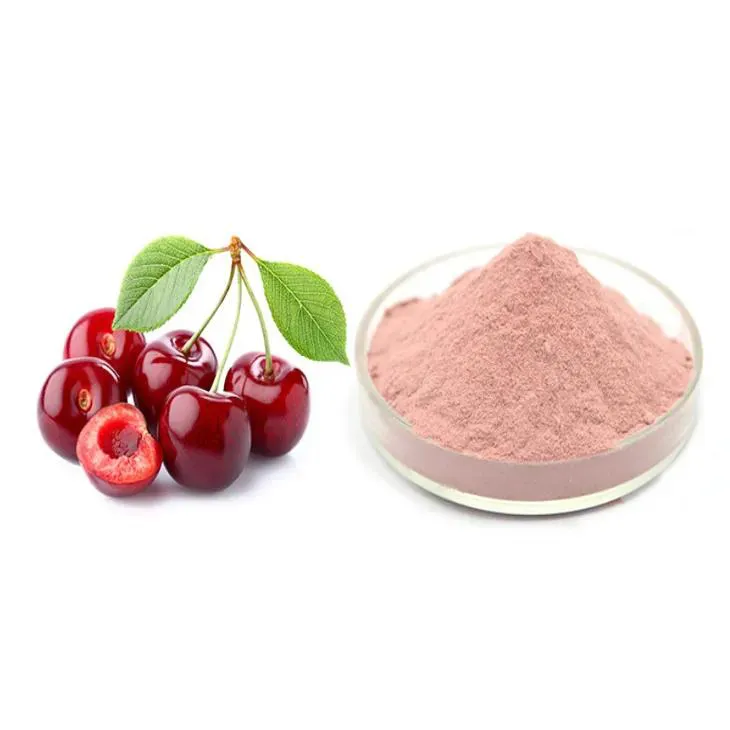- 0086-571-85302990
- sales@greenskybio.com
How to Extract Acerola Juice Powder by Steam Distillation.
2024-11-26

1. Introduction
Acerola cherries are known for their high nutritional value, being rich in vitamin C, antioxidants, and other beneficial compounds. Extracting Acerola Juice Powder through steam distillation is an interesting and effective method. This process not only helps in obtaining a concentrated form of the juice but also has the potential to preserve its important nutrients and flavors.

2. Properties of Acerola Cherries
A. Nutritional Content
- Acerola cherries are one of the richest natural sources of vitamin C. In fact, they contain a much higher concentration of this vitamin compared to oranges. Vitamin C is crucial for the immune system, collagen synthesis, and antioxidant protection in the body.
- They also contain other vitamins such as vitamin A, which is important for vision and skin health, and various B - vitamins that play a role in energy metabolism.
- The antioxidant content in acerola cherries, including flavonoids and phenolic compounds, helps in fighting free radicals in the body. These free radicals can cause damage to cells and are associated with various diseases and aging processes.
- Acerola cherries are small, round fruits. They typically have a bright red color when ripe, which is an indication of their high content of antioxidants.
- The flesh of the acerola cherry is soft and juicy. This makes it suitable for juice extraction processes. However, it also means that it can be easily damaged during handling and processing.

3. Principles of Steam Distillation
A. Basic Concept Steam distillation is a separation process that is based on the different volatilities of the components in a mixture. In the case of acerola juice extraction:
- When steam is passed through the acerola cherries (either in whole or mashed form), the volatile components in the cherries, such as the essential oils and some of the flavor compounds, vaporize along with the steam.
- The non - volatile components, such as the pulp and some of the larger molecules like polysaccharides, remain in the residue.
- The vapor mixture of steam and the volatile components from the acerola cherries then passes through a condenser. In the condenser, the steam is cooled and converted back into liquid water.
- Since the volatile components from the cherries are not miscible with water (or have limited miscibility), they form a separate phase. This phase can be separated from the water phase, and it contains a concentrated form of the volatile and aromatic compounds from the acerola juice.

4. Steps for Extracting Acerola Juice Powder by Steam Distillation
A. Preparation of Acerola Cherries
- Harvesting: Acerola cherries should be harvested at the right time. They are typically harvested when they are fully ripe. Ripe acerola cherries have a bright red color and are slightly soft to the touch. Harvesting at the wrong time can result in lower juice quality and quantity.
- Sorting and Cleaning: After harvesting, the cherries need to be sorted to remove any damaged, unripe, or diseased fruits. Then, they are thoroughly cleaned to remove dirt, debris, and any pesticides or other contaminants. This can be done by washing the cherries in clean water multiple times.
- Mashing or Grinding: Once the cherries are clean, they can be mashed or ground into a pulp. This increases the surface area available for steam to interact with the cherry components, facilitating the extraction process. A blender or a food processor can be used for this purpose.
- Setup of the Steam Distillation Apparatus: A proper steam distillation apparatus is required. This typically consists of a steam generator, a distillation flask where the mashed acerola cherries are placed, a condenser, and a collection vessel. The apparatus should be assembled correctly to ensure proper functioning and to prevent any leaks.
- Introduction of Steam: Steam is introduced into the distillation flask containing the mashed acerola cherries. The steam should be at an appropriate temperature and pressure. Too high a temperature can cause degradation of some of the sensitive components in the cherries, while too low a temperature may result in inefficient extraction.
- Vaporization and Condensation: As the steam passes through the mashed cherries, the volatile components vaporize and are carried along with the steam. The vapor mixture then enters the condenser, where it is cooled and condensed. The condensed liquid contains a mixture of water and the volatile components from the acerola juice.
- Separation of the Extract: The condensed liquid is then transferred to a separating funnel or another separation device. Here, the water and the volatile extract from the acerola juice are allowed to separate. The volatile extract, which contains the important flavors and some of the nutrients, is collected.
- Evaporation of Water: The collected volatile extract still contains a significant amount of water. To obtain the juice powder, the water needs to be evaporated. This can be done using techniques such as vacuum evaporation or freeze - drying. Vacuum evaporation is carried out at a reduced pressure, which allows the water to be removed at a lower temperature, thereby minimizing the damage to the nutrients. Freeze - drying involves freezing the extract first and then sublimating the ice directly into vapor, leaving behind the dry powder.
- Grinding and Packaging: Once the water is removed, the resulting solid is ground into a fine powder. This powder is the Acerola Juice Powder. It is then packaged in airtight containers to prevent moisture absorption and oxidation. Proper packaging helps in maintaining the quality and shelf - life of the product.

5. Optimal Conditions for High - Quality Extraction
A. Temperature
- The temperature during steam distillation is a crucial factor. A temperature range of 100 - 120°C is often considered optimal for acerola juice extraction. At this temperature range, the volatile components are vaporized effectively without causing excessive degradation of the heat - sensitive nutrients.
- Temperatures higher than 120°C may lead to the breakdown of vitamin C and other important compounds in the acerola cherries. On the other hand, temperatures lower than 100°C may result in incomplete extraction of the volatile components.
- The pressure in the steam distillation system also affects the extraction process. A slightly reduced pressure, typically around 0.8 - 0.9 atmospheres, can be beneficial. This reduced pressure allows the steam to vaporize the volatile components at a lower temperature, which helps in preserving the quality of the extract.
- Higher pressures may require higher temperatures to achieve the same vaporization effect, which can be detrimental to the quality of the acerola juice extract.
- The duration of the steam distillation process should be carefully controlled. A distillation time of 2 - 3 hours is often sufficient for acerola juice extraction. This time allows for the complete vaporization of the volatile components without over - exposing the extract to heat for a long time.
- If the distillation time is too short, not all of the volatile components will be extracted, resulting in a lower - quality extract. However, if the distillation time is too long, there is a risk of degrading the nutrients and flavors in the extract.
6. Preservation of Nutrients and Flavors
A. Nutrient Preservation
- Steam distillation, when carried out under the optimal conditions described above, can help in preserving the important nutrients in acerola juice. The relatively low - temperature and short - duration process minimizes the degradation of vitamin C and other heat - sensitive compounds.
- By separating the volatile components from the non - volatile ones, the extract obtained contains a concentrated form of the nutrients that are more easily absorbed by the body.
- Additionally, the subsequent drying process, whether it is vacuum evaporation or freeze - drying, is designed to further protect the nutrients. These drying methods remove water without subjecting the nutrients to excessive heat.
- The volatile compounds that are responsible for the unique flavor of acerola cherries are effectively captured during steam distillation. These compounds are vaporized along with the steam and are subsequently separated from the water phase.
- The careful control of temperature, pressure, and distillation time ensures that these flavor - giving compounds are not lost or altered during the extraction process. When the acerola juice powder is reconstituted, it retains the characteristic flavor of the fresh cherries.
7. Conclusion
Extracting acerola juice powder by steam distillation is a complex but rewarding process. By understanding the properties of acerola cherries, the principles of steam distillation, and the optimal conditions for extraction, it is possible to produce a high - quality product that preserves the rich nutrients and flavors of the cherries. This acerola juice powder can be used in various applications, such as in the food and beverage industry, in dietary supplements, or for home use in cooking and baking. Continued research and development in this area may lead to further improvements in the extraction process and the quality of the final product.
FAQ:
What are the main unique properties of acerola cherries?
Acerola cherries are known for their extremely high vitamin C content, which is much higher than that of many other fruits. They also contain other beneficial nutrients such as vitamin A, B - complex vitamins, and various minerals. Additionally, acerola cherries have a distinct and pleasant flavor profile that makes them popular for juice production.
How does steam distillation work in the extraction of acerola juice powder?
Steam distillation works by passing steam through the acerola cherry material. The steam helps to vaporize the volatile components, including the water and certain flavor and nutrient - containing compounds in the cherries. These vaporized components are then condensed back into a liquid form, which can be further processed into juice powder.
What are the optimal temperature and pressure conditions for steam distillation of acerola cherry juice?
The optimal temperature typically ranges from around 100 - 120°C. The pressure is usually maintained at a level that allows for efficient vaporization and condensation. However, these values can be adjusted depending on the specific equipment used and the desired quality of the final product. Lower temperatures may result in incomplete extraction, while higher temperatures could potentially damage some of the delicate nutrients.
How can steam distillation preserve the nutrients in acerola cherry juice powder?
Steam distillation is a relatively gentle process compared to some other extraction methods. Since it mainly uses steam to extract the components, it can avoid excessive heat exposure that might otherwise degrade the nutrients. The rapid vaporization and condensation steps also help to minimize the time during which the nutrients are exposed to potentially harmful conditions, thus helping to preserve their integrity.
What are the steps involved in the overall process of extracting acerola juice powder by steam distillation?
First, the acerola cherries are prepared, which may involve washing, sorting, and possibly crushing them. Then, steam is introduced into the cherry material. The vaporized components are collected and condensed. The resulting liquid is then concentrated and dried to form the juice powder. Throughout the process, careful monitoring of temperature, pressure, and other parameters is essential to ensure high - quality extraction.
Related literature
- Steam Distillation Techniques for Fruit Juice Extraction"
- "Acerola Cherry: Properties and Processing Methods"
- "Advanced Extraction Technologies for Nutrient - Rich Juices"
TAGS:
What are the optimal temperature and pressure conditions for steam distillation of acerola cherry juice?
The optimal temperature typically ranges from around 100 - 120°C. The pressure is usually maintained at a level that allows for efficient vaporization and condensation. However, these values can be adjusted depending on the specific equipment used and the desired quality of the final product. Lower temperatures may result in incomplete extraction, while higher temperatures could potentially damage some of the delicate nutrients.
How can steam distillation preserve the nutrients in acerola cherry juice powder?
Steam distillation is a relatively gentle process compared to some other extraction methods. Since it mainly uses steam to extract the components, it can avoid excessive heat exposure that might otherwise degrade the nutrients. The rapid vaporization and condensation steps also help to minimize the time during which the nutrients are exposed to potentially harmful conditions, thus helping to preserve their integrity.
What are the steps involved in the overall process of extracting acerola juice powder by steam distillation?
First, the acerola cherries are prepared, which may involve washing, sorting, and possibly crushing them. Then, steam is introduced into the cherry material. The vaporized components are collected and condensed. The resulting liquid is then concentrated and dried to form the juice powder. Throughout the process, careful monitoring of temperature, pressure, and other parameters is essential to ensure high - quality extraction.
Related literature
- Steam Distillation Techniques for Fruit Juice Extraction"
- "Acerola Cherry: Properties and Processing Methods"
- "Advanced Extraction Technologies for Nutrient - Rich Juices"
TAGS:
What are the steps involved in the overall process of extracting acerola juice powder by steam distillation?
First, the acerola cherries are prepared, which may involve washing, sorting, and possibly crushing them. Then, steam is introduced into the cherry material. The vaporized components are collected and condensed. The resulting liquid is then concentrated and dried to form the juice powder. Throughout the process, careful monitoring of temperature, pressure, and other parameters is essential to ensure high - quality extraction.
Related literature
- Steam Distillation Techniques for Fruit Juice Extraction"
- "Acerola Cherry: Properties and Processing Methods"
- "Advanced Extraction Technologies for Nutrient - Rich Juices"
TAGS:
- ▶ Hesperidin
- ▶ Citrus Bioflavonoids
- ▶ Plant Extract
- ▶ lycopene
- ▶ Diosmin
- ▶ Grape seed extract
- ▶ Sea buckthorn Juice Powder
- ▶ Fruit Juice Powder
- ▶ Hops Extract
- ▶ Artichoke Extract
- ▶ Mushroom extract
- ▶ Astaxanthin
- ▶ Green Tea Extract
- ▶ Curcumin
- ▶ Horse Chestnut Extract
- ▶ Other Product
- ▶ Boswellia Serrata Extract
- ▶ Resveratrol
- ▶ Marigold Extract
- ▶ Grape Leaf Extract
- ▶ New Product
- ▶ Aminolevulinic acid
- ▶ Cranberry Extract
- ▶ Red Yeast Rice
- ▶ Red Wine Extract
-
Hawthorn Extract
2024-11-26
-
Lily extract
2024-11-26
-
Baicalin
2024-11-26
-
Fig Extract
2024-11-26
-
Yam Extract
2024-11-26
-
Carrageenan Extract Powder
2024-11-26
-
Tinospora cordifolia extract
2024-11-26
-
Hawthorn powder
2024-11-26
-
Peppermint Extract Powder
2024-11-26
-
Pueraria Lobata Extract
2024-11-26





















